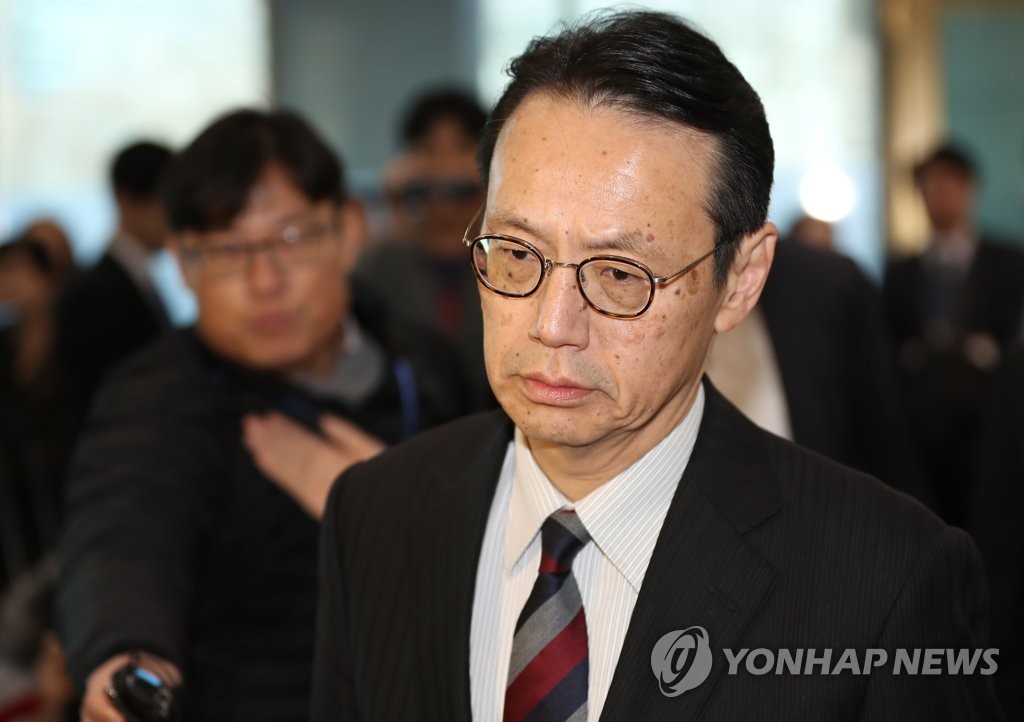- California Assembly OKs highest minimum wage in nation
- S. Korea unveils first graphic cigarette warnings
- US joins with South Korea, Japan in bid to deter North Korea
- LPGA golfer Chun In-gee finally back in action
- S. Korea won’t be top seed in final World Cup qualification round
- US men’s soccer misses 2nd straight Olympics
- US back on track in qualifying with 4-0 win over Guatemala
- High-intensity workout injuries spawn cottage industry
- CDC expands range of Zika mosquitoes into parts of Northeast
- Who knew? ‘The Walking Dead’ is helping families connect
S. Korea expresses ‘strong regrets’ over Japan’s claim of targeting patrol plane
SEOUL, Dec. 24 (Yonhap) — South Korea voiced “strong regrets” Monday over Japan’s repeated claim that its Navy ship directed fire-control radar at Tokyo’s patrol aircraft last week, a Seoul official said.
Korea’s foreign ministry expressed its view during director-general talks with Japan in Seoul.
“We have voiced strong regrets that Japan has unilaterally made its own claims to the media,” the official said on condition of anonymity.
“The two sides sufficiently explained their positions, but there appear to be gaps in their views. But we have agreed to continue communication going forward, if need be,” he added.
On Friday, Tokyo publicly accused a South Korean warship of having targeted its Maritime Self-Defense Force’s P-1 patrol aircraft on Thursday.
Seoul rejected the claim, saying Tokyo misinterpreted its naval operation to help a North Korean ship drifting near a sea border in the East Sea.
Despite Seoul’s denial, Tokyo has repeatedly raised the issue, sparking speculation that the Japanese government appears to be trying to divert attention from its waning public support.
The working-level talks were led by Kim Yong-kil, director-general for Northeast Asian affairs at Seoul’s Ministry of Foreign Affairs, and his Japanese counterpart, Kenji Kanasugi.
Another key topic at the talks was a spat over the recent rulings by Korea’s Supreme Court that two Japanese firms should compensate Koreans forced to toil without pay at their factories during World War II.
The two sides agreed to continue close communication to “minimize” any adverse impact on the bilateral relationship long beset by historical and territorial disputes. Japan colonized the Korean Peninsula from 1910-45.
Korea’s top court recognized the individual rights of the colonial-era victims to claim damages. But Japan has protested the rulings, saying all reparation-related issues were settled in a 1965 deal to normalize bilateral diplomatic ties.
Earlier in the day, Lee Do-hoon, Seoul’s special representative for Korean Peninsula peace and security affairs, held talks with Kanasugi, who doubles as Tokyo’s top nuclear envoy.
During the meeting, the two discussed ongoing efforts to resume stalled negotiations between Washington and Pyongyang and cooperation between Seoul and Tokyo to support diplomacy to achieve denuclearization and a lasting peace on the peninsula.
“We have agreed to continue close communication and cooperation based on the outcome of the consultations this time,” a Seoul official said on condition of anonymity.

Kenji Kanasugi, director-general of the Japanese Foreign Ministry’s Asian and Oceanian Affairs Bureau, arrives at South Korea’s foreign ministry in Seoul for talks with Seoul officials on Dec. 24, 2018. (Yonhap)ㅍ











